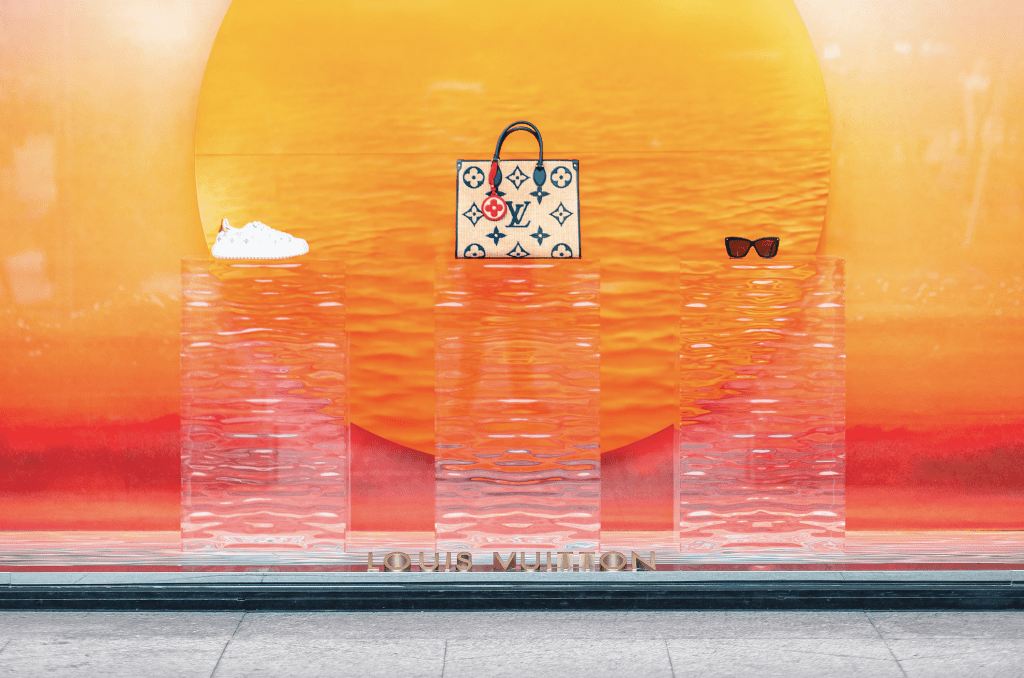The Russian government has given the green light to parallel imports in the wake of a wide array of Western brands halting operations in Russia following its invasion of Ukraine. Russia’s Prime Minister Mikhail Mishustin said on Wednesday that retailers are free to import and sell trademark-bearing goods without explicit authorization from the brand owners, thereby, potentially opening the door to a free flow of grey market goods in Russia – or authentic trademark-bearing products obtained from one market (i.e., a country or economic area) that are subsequently imported into another market and sold there without the consent of the trademark holder.
The announcement comes after the Krelim previously hinted that parallel imports might be allowed into Russia as varying sanctions, widespread logistics/supply disruptions, and intense pressure from stakeholders has prompted hundreds of Western companies – from H&M to Hermès – to temporarily halt their operations in Russia, thereby, depriving consumers of a wide array of goods and services.
“Legalization of parallel imports in the current environment will increase the number of economic entities importing goods into Russia, [which] will saturate the domestic market with goods needed by consumers,” Maxim Shaskolsky, head of Russian Federal Antimonopoly Service, stated last week amid reports that Russian retailers were “grappl[ing] to find ways to combat their growing isolation in the face of sanctions,” including way of the grey market.
The Legality of the Grey Market
In terms of the state of the law when it comes to parallel imports, Russia has been moving towards allowing for such trade in recent years. “The current Russian law prohibits parallel importation,” according to Anton Bankovskiy, the head of IP at CMS in Moscow, but the Russian Federal Anti-Monopoly Service has been “trying for several years to legalize parallel imports in Russia, and decisions made by the Commercial Court in Moscow are aiming to strengthen this position.” A Moscow court handed Daimler a loss in a decision in August 2021, for instance, blocking the German auto giant from restricting third parties from importing authentic auto parts into Russia that Daimler had previously released in other markets.
In that case, in which Daimler unsuccessfully sought to block the subsequent sale of its car parts in Russia, and a similar dispute initiated by a Japanese manufacturer of hydraulic equipment, the Moscow City Commercial Court “made a general conclusion that the sale by [unauthorized third parties] of legally purchased goods marked with the manufacturer’s trademark is not, in principle, an infringement of [the trademark holder’s] exclusive rights,” per Bankovskiy.
Despite a growing number of court decisions that have found that parallel imports do not amount to trademark infringement (and in some cases, that grey market bans actually run afoul of national competition law), exceptions to such allowances for “trademark exhaustion” exist. For example, courts have found that if the imported goods at issue meaningfully diverge from the state that they were in when the trademark owner (or an authorized retailer) first released them into the market, there could be trademark causes of action at play and the good may be subject to removal from the market. This limitation has been a key tool for luxury goods in grey market cases across the globe. Brands have argued that when the conditions in which otherwise authentic goods are sold are at odds with those in which they would normally be sold, then the goods and the terms of the sale of those goods (such as the potential availability of product warranties or the lack thereof) are “materially different,” and thus, amount to infringement.
It would not be surprising if brands sought to fight any potential sales of grey market goods in Russia on similar grounds, although, it is not clear how amendable Russian courts would be to providing brands in “unfriendly” countries with remedies at this time.
As for what the immediate effects of an increase in parallel imports would look like, Maksym Popov, a partner at Mentors Law Firm in Ukraine, states that “there would be a lot of unauthorized dealers on the market, whom rights holders will not be able to control in terms of transportation and storage of goods, therefore, leading to a risk of low-quality goods and/or goods not intended for this market.” Beyond that, there is also a chance that the market for counterfeit goods would become more robust. “Without the participation of rights holders,” Popov asserts that it could become “more difficult for Russian customs authorities and purchasers, alike, to distinguish between [grey market goods] and counterfeit ones,” and could ultimately lead to an increase in the cost of fighting fakes in the Russian market, assuming companies opt to initiate legal action at this time.
Another Outcome?
There could be another potential outcome at play here, and one that might actually be more likely than legal battles should Russian retailers look to make up for the lack of luxury goods in the country with grey market alternatives. Depending on how long the side-effects of Russian sanctions last, including the bottomed-out ruble and significant shipping/supply quagmires, the luxury goods ecosystem in Russia may begin to mirror that of China, which routinely sees a significant supply of grey market goods coming by way of multi-brand stores in places like Italy and landing on the mainland after passing through agents in Hong Kong, oftentimes with brands playing some role in this situation.
As we reported earlier this month, in the event that luxury brands’ self-operated stores and e-commerce operations do not return in a timely manner (and they continue to face pressure to distance themselves from this market), luxury brands may opt to look the other way and enable multi-brand stores in other markets to order excess quantities of goods and ship them to Moscow with the help of parallel importers in order to make up for the relatively small percentage of sales that they are not currently gaining from that market. This assumes that they are not making up declining revenue in Russia this with increased sales coming from oligarchs and other deep-pocketed Russian individuals that have relocated to places like Dubai. (These products would likely be routed through another country, such as Turkey or Uzbekistan, and then to Russia.)
Reports have also indicated that in addition to looking to the grey market, Russia may aim to “supplement or completely replace goods of brands” that have up-and-left the Russian market (for the time being, at least) “with ones of a similar quality and design” from companies in China, India, Iran, and Turkey. It is worth noting that while the Russian Ministry of Economic Development may be able to successfully lead a charge to replace common consumer goods with alternatives from non-Western companies, it would likely have trouble when it comes to luxury goods, whose offerings might not be as easily swapped for “similar” options, at least from a branding perspective.
It is too soon to adequately gauge how the scenario will play out. However, the reality is likely that fashion and luxury goods are relatively low on the totem pole of products that the Russian Ministry of Economic Development will view as necessary to import via grey market trade (at least in the immediate term). To date, such intellectual property-focused decrees are being framed by the Russian government as necessary for “extraordinary situations when there will be absence of certain goods on the Russian market,” with things like food and medicine – and not designer handbags and jewelry – being among the most commonly cited targets of such looming mandates.














